After spending some time in Ho Chi Minh City, it was time to move onto to somewhere more relaxing. Mui Ne would be the next destination – a small fishing town on the south-east coast with a sizeable beach. After an uncomfortable ride on the sleeper bus and a night in the hotel, I took a walk around the town to explore.
I was excited to see a beach once more since I hadn’t been on one since Thailand a couple of months before. It took about an hour to get into the main village, where several small paths lead down to the beach.
I had spotted on the map that there was also a market on the beach, so there would be lots to see if it was still open. I didn’t realise that this was a sign of what was to come.
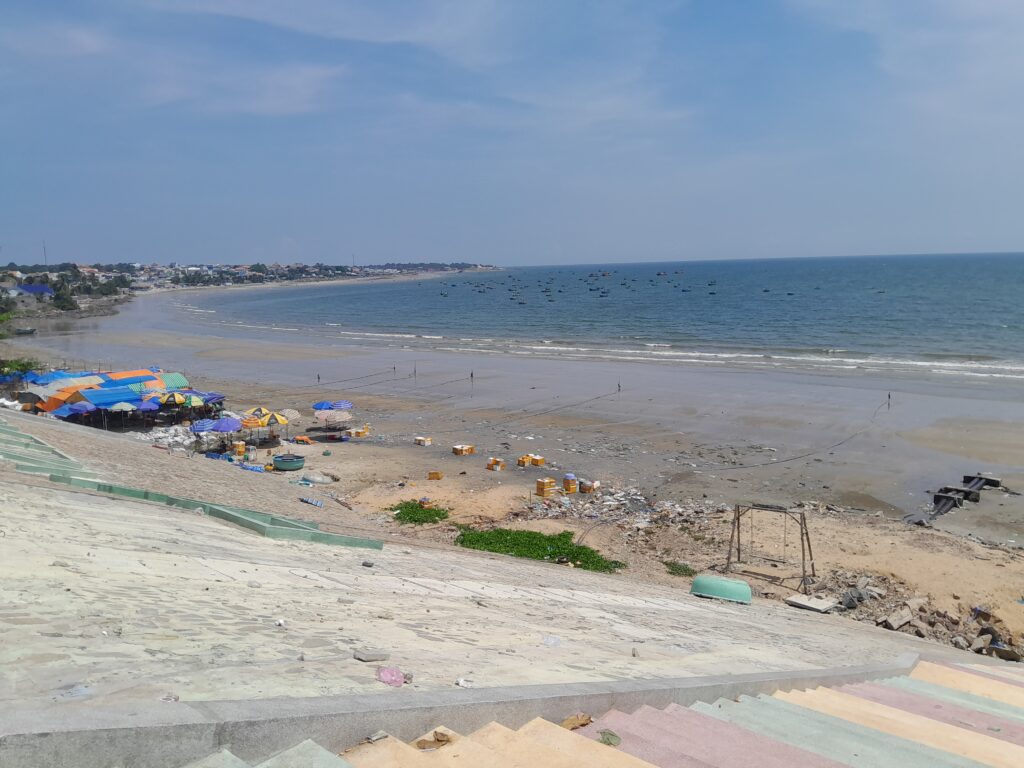
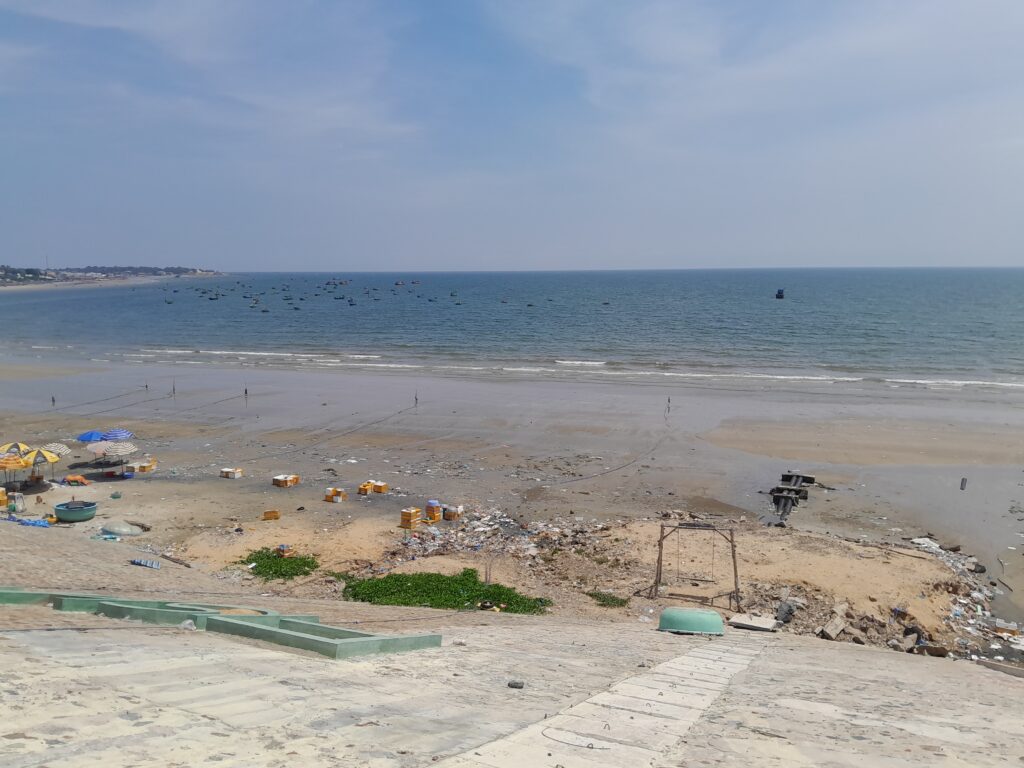
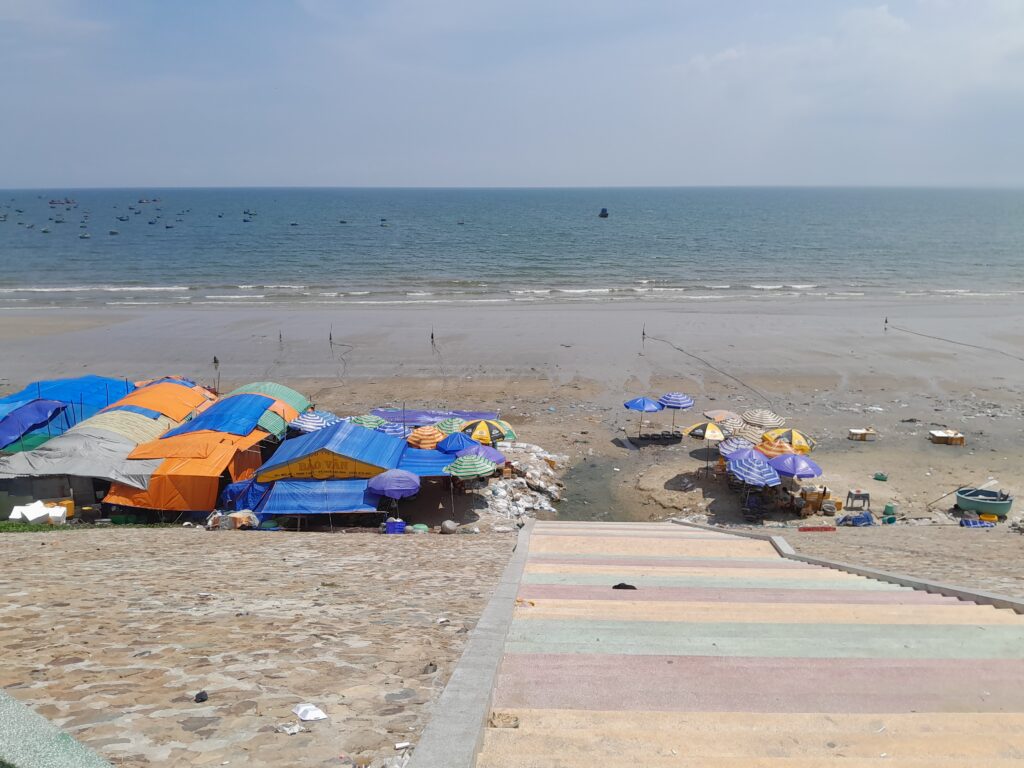
As I walked down the path I could smell it. It wasn’t an overwhelming smell, but it was strong enough. As I got closer to the beach the smell only got stronger. When I found the beach, I found it was the dump where the smell was coming from.
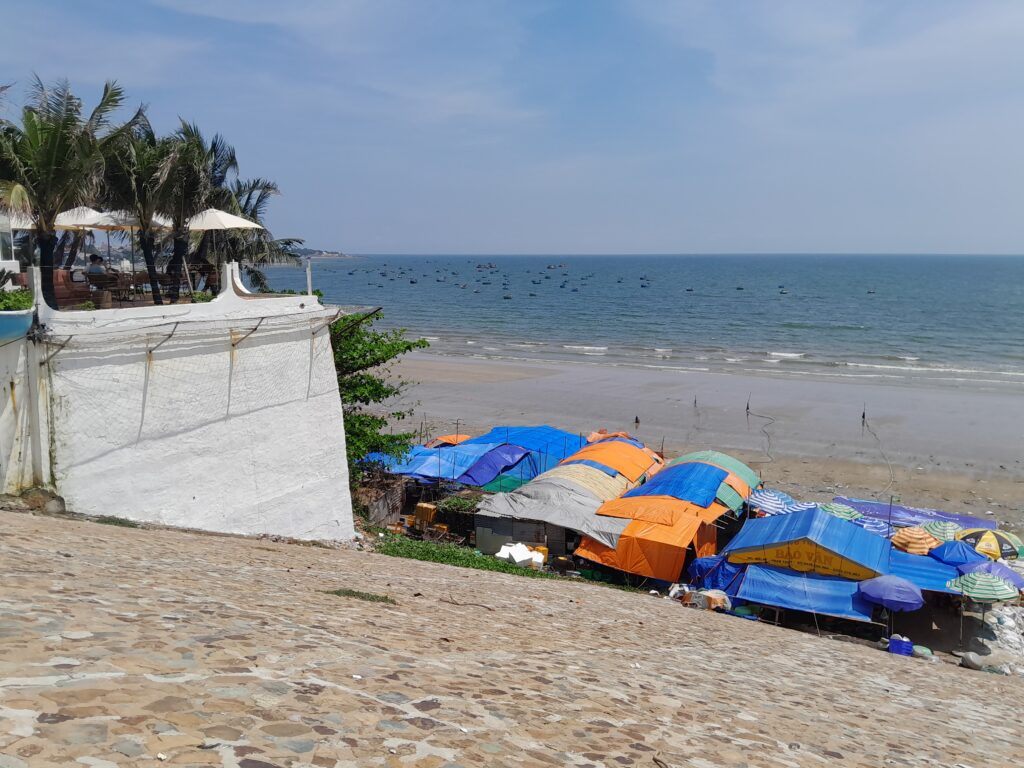
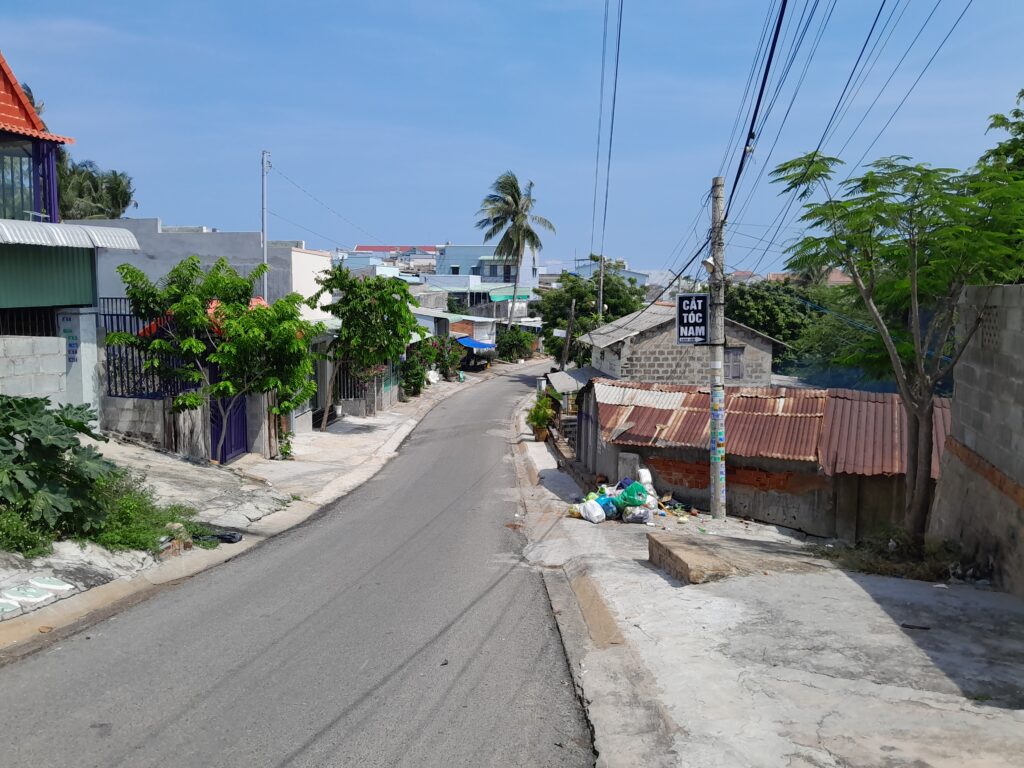
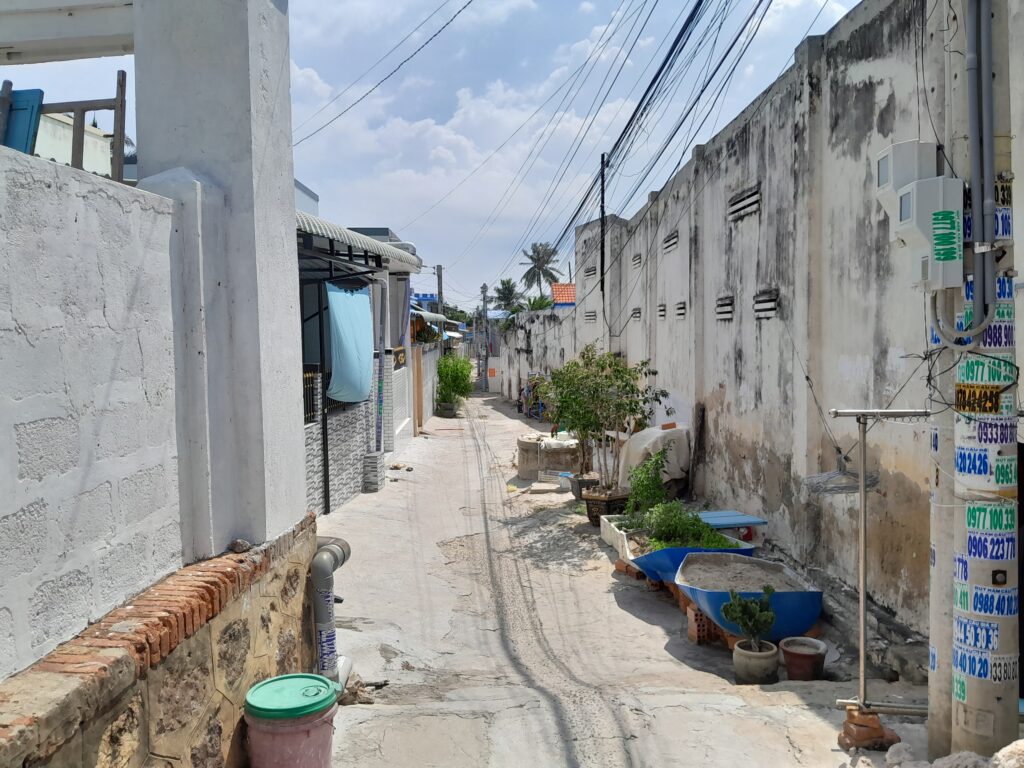
Every crack in between every stone was filled with trash. Bin bags filled to the brim surrounded the closed marketplace, having been left there for nature to clean up. Crisp packets, cans, and other crap littered the sand. The waves could be heard as in any beach, and I wondered how much trash had washed out to sea.
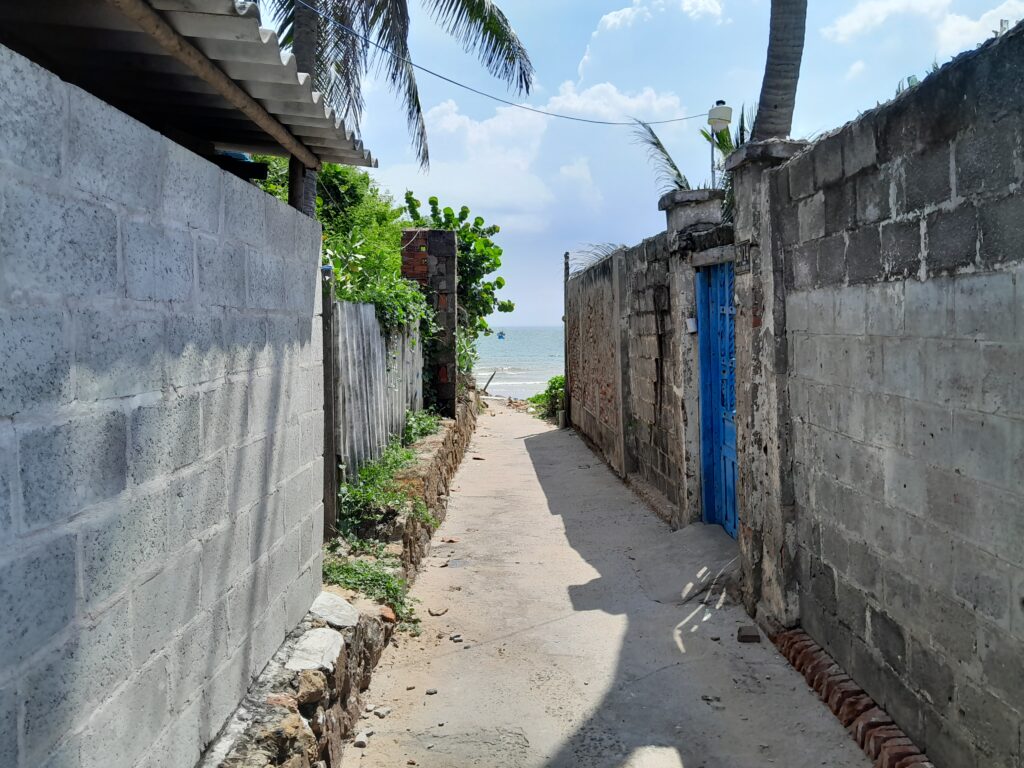
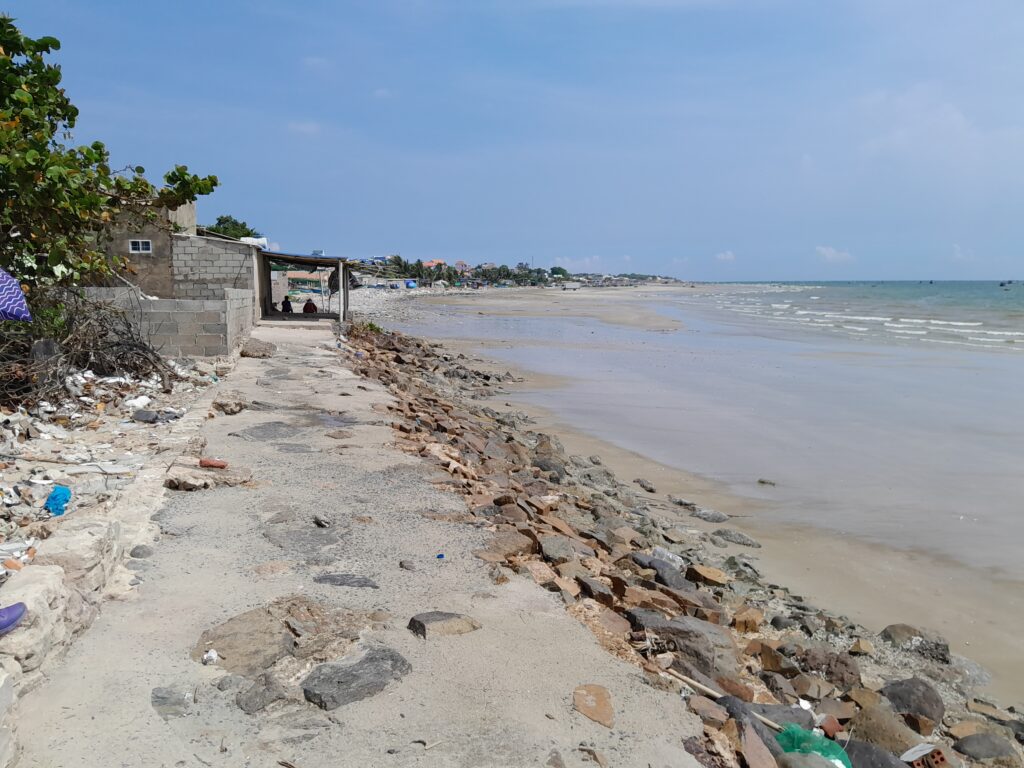
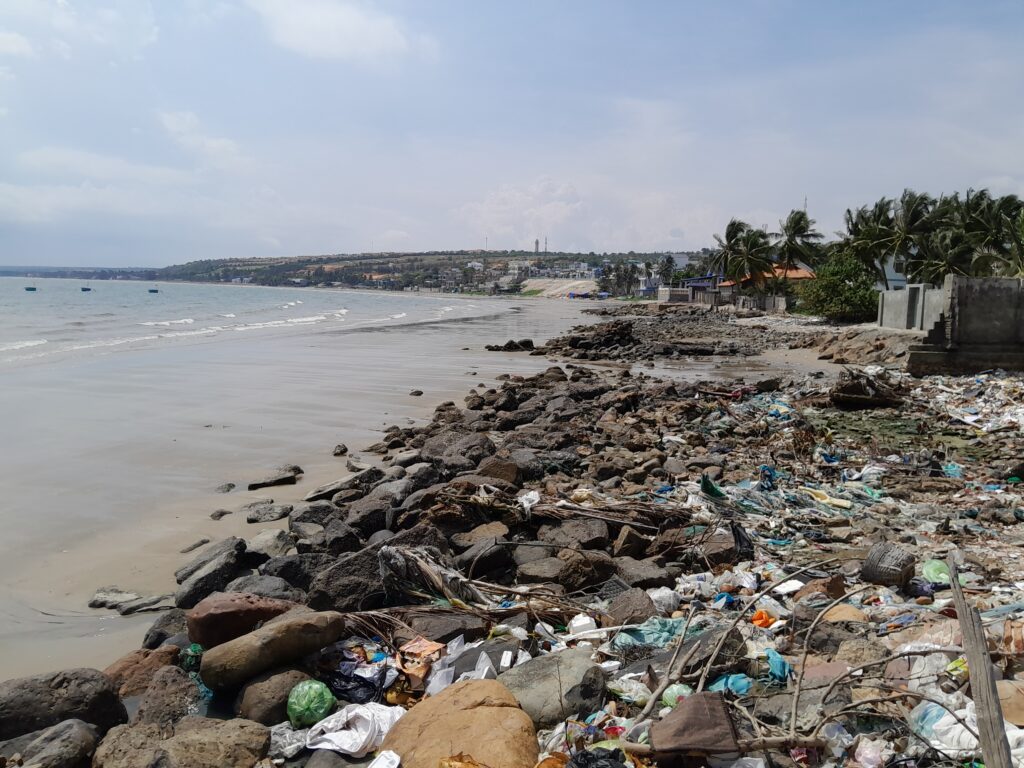
It was a far cry from the clean beaches in Thailand. If I didn’t before, I understood now why Thailand has such strict laws protecting its beaches. Clean beaches aren’t just pretty, they’re proof someone cares. It’s a big reason Thailand is so attractive to tourists recently.
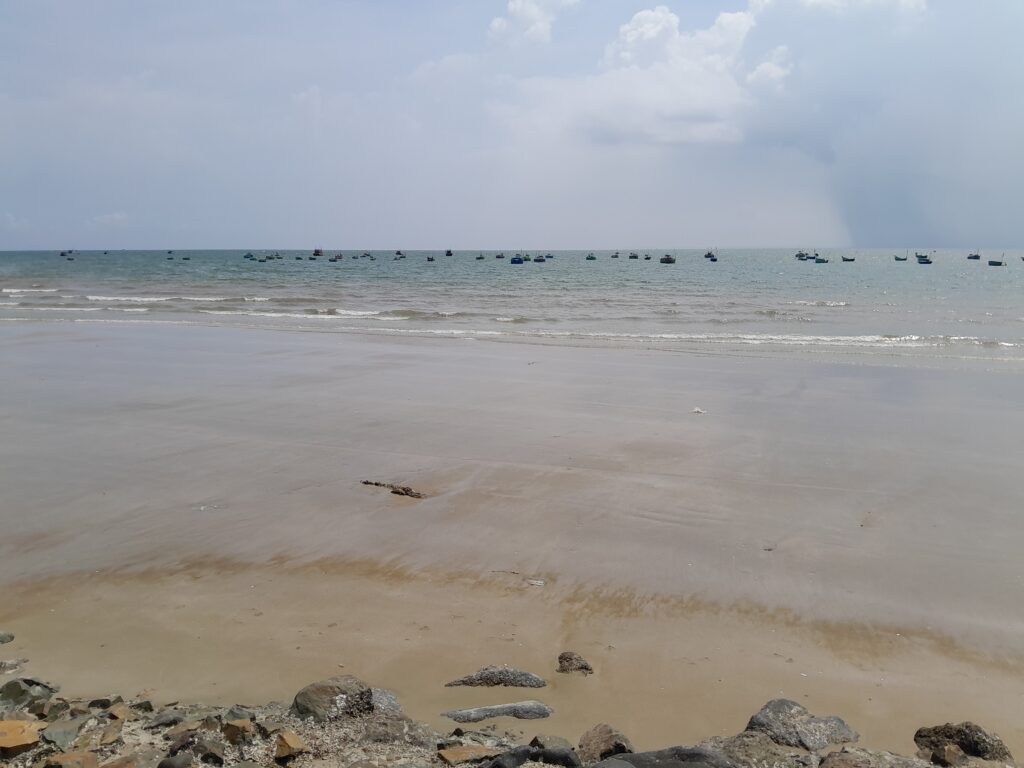
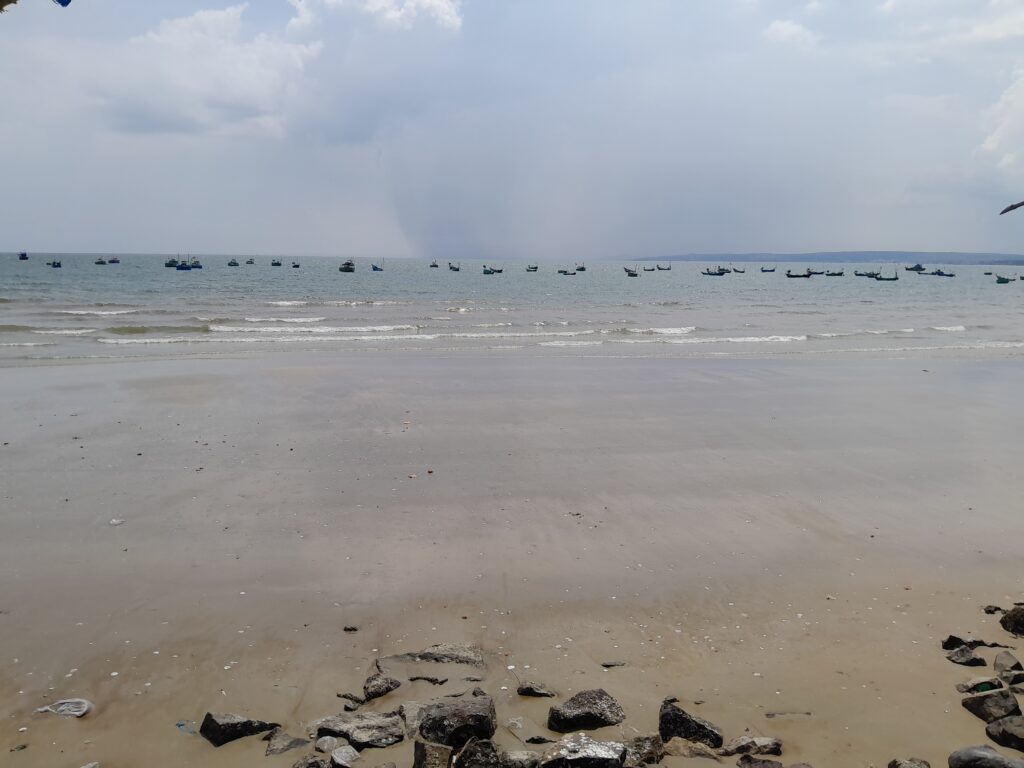
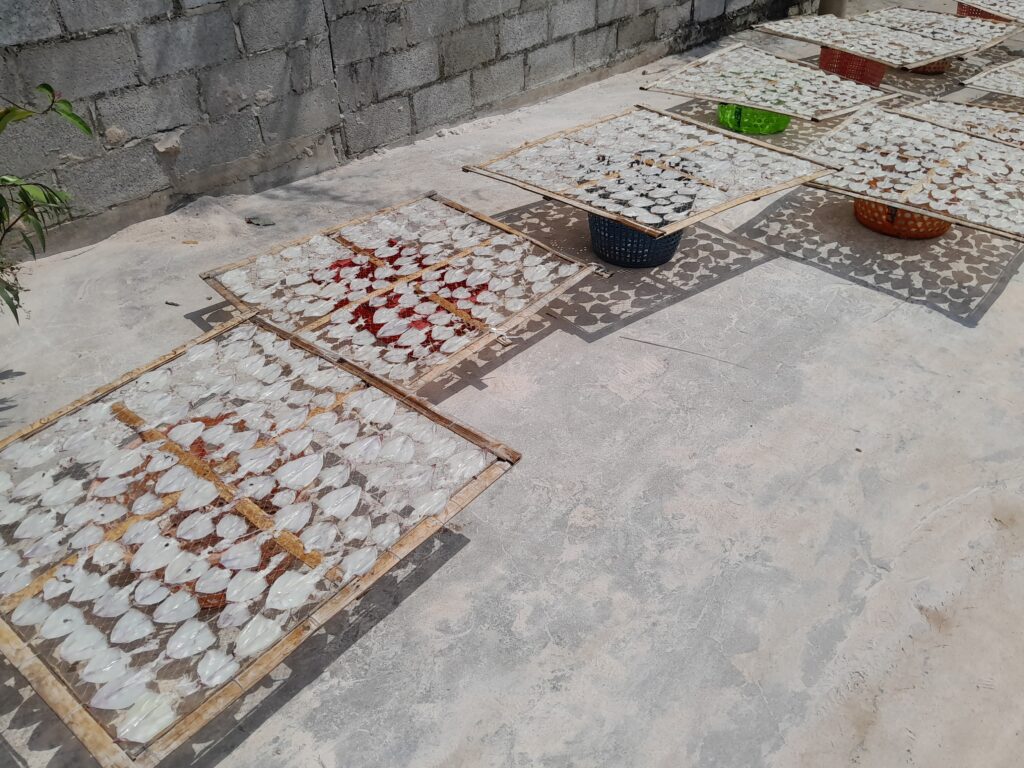
Beyond the beach, out on the sea itself you could see several fishing boats. This was a fishing village, and they were out looking for a catch. Since the beach walk I had hoped for didn’t meet my expectations, I decided to explore the town instead.
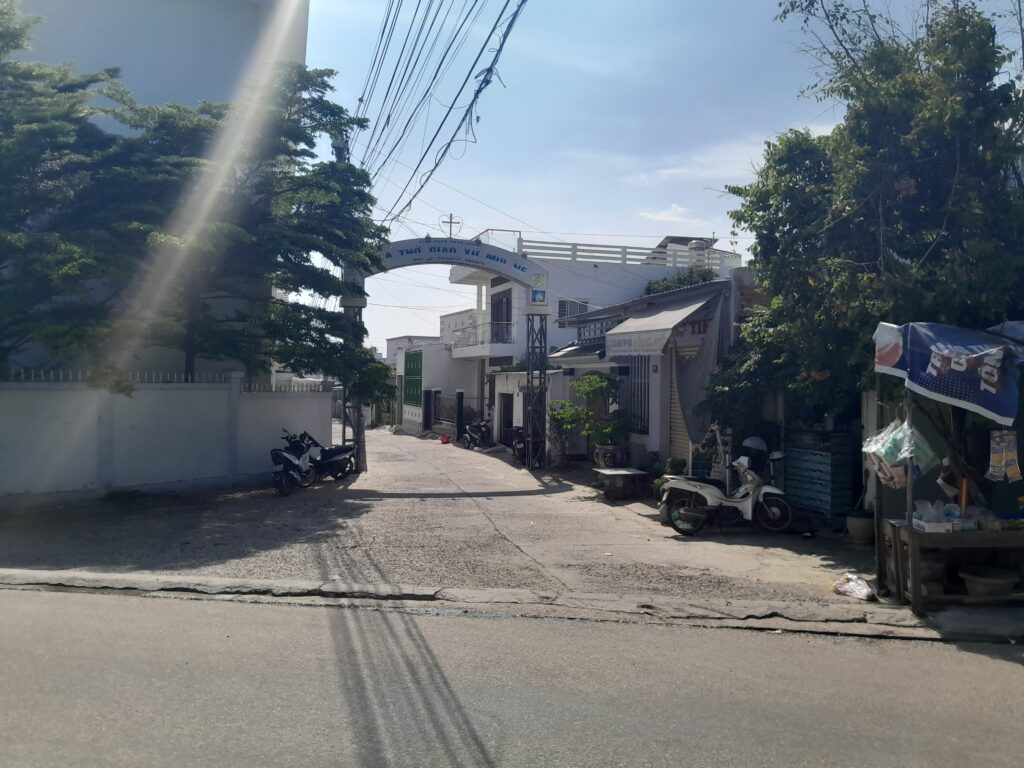
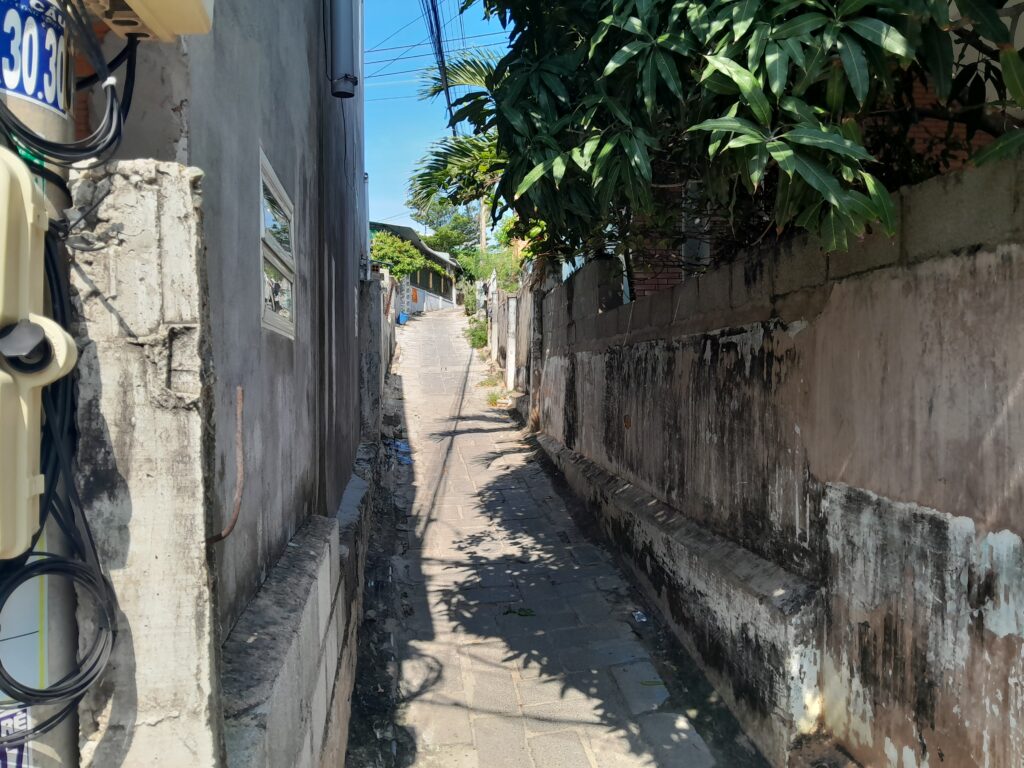
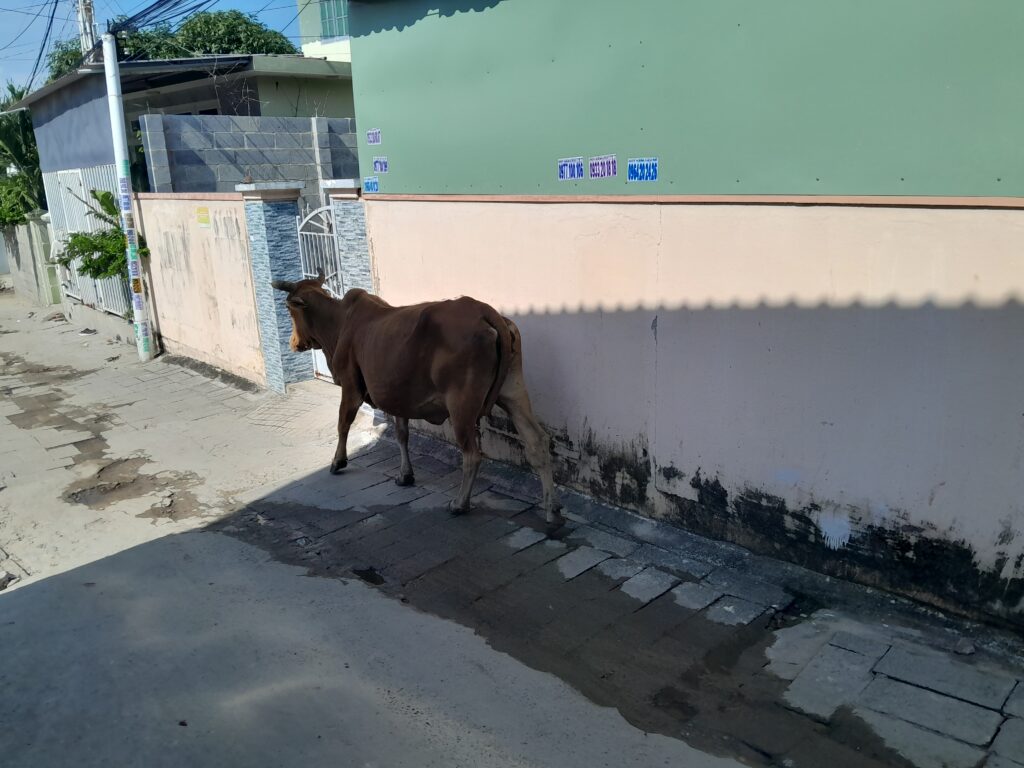
It’s a small town with lots of nooks and crannies. You can see and smell the signs of rural fishing life everywhere. Fish, squid, and cuttlefish left to dry out in the sun. Cattle and other farm animals roaming free. Wooden boats being worked on and repaired.
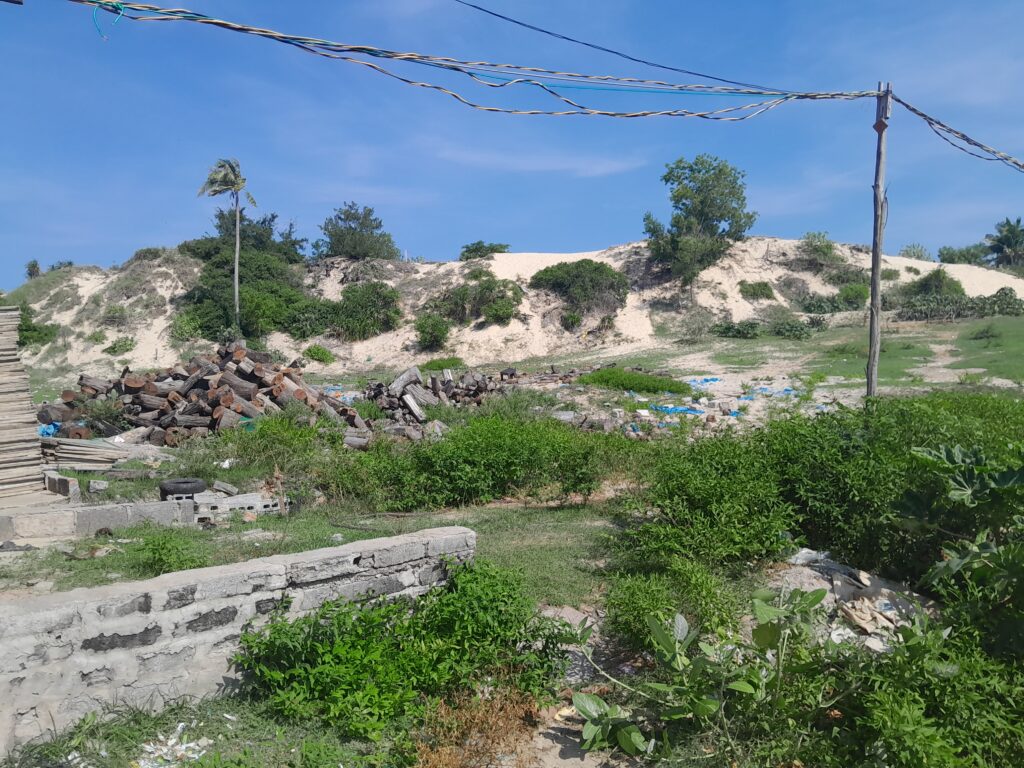
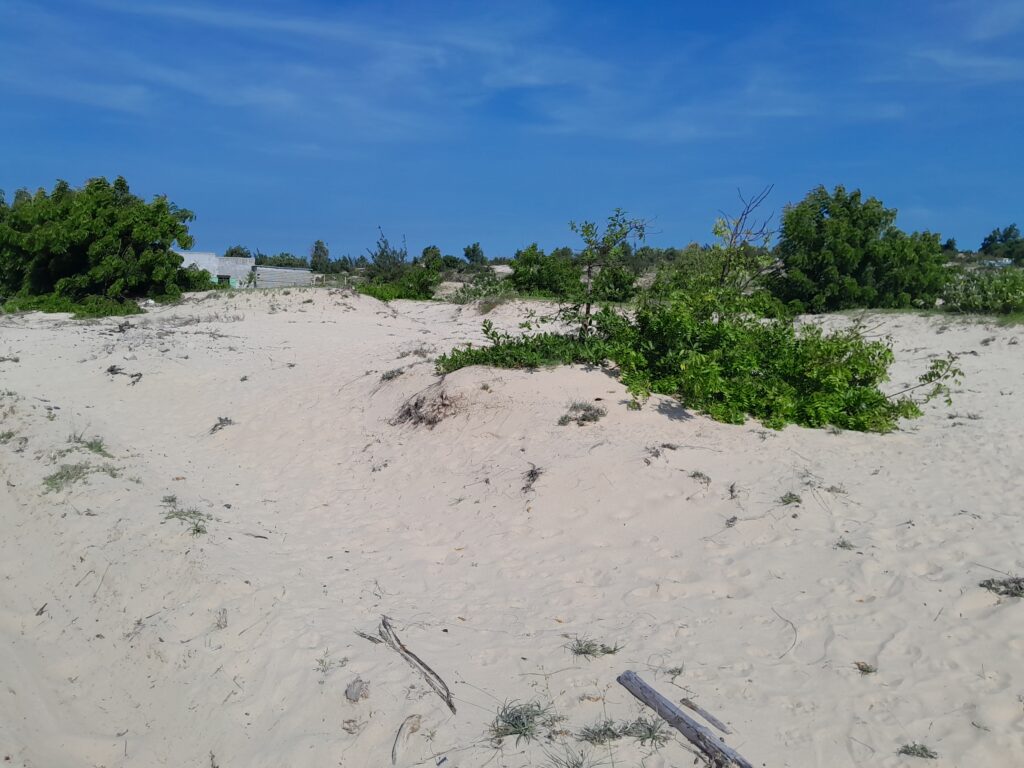
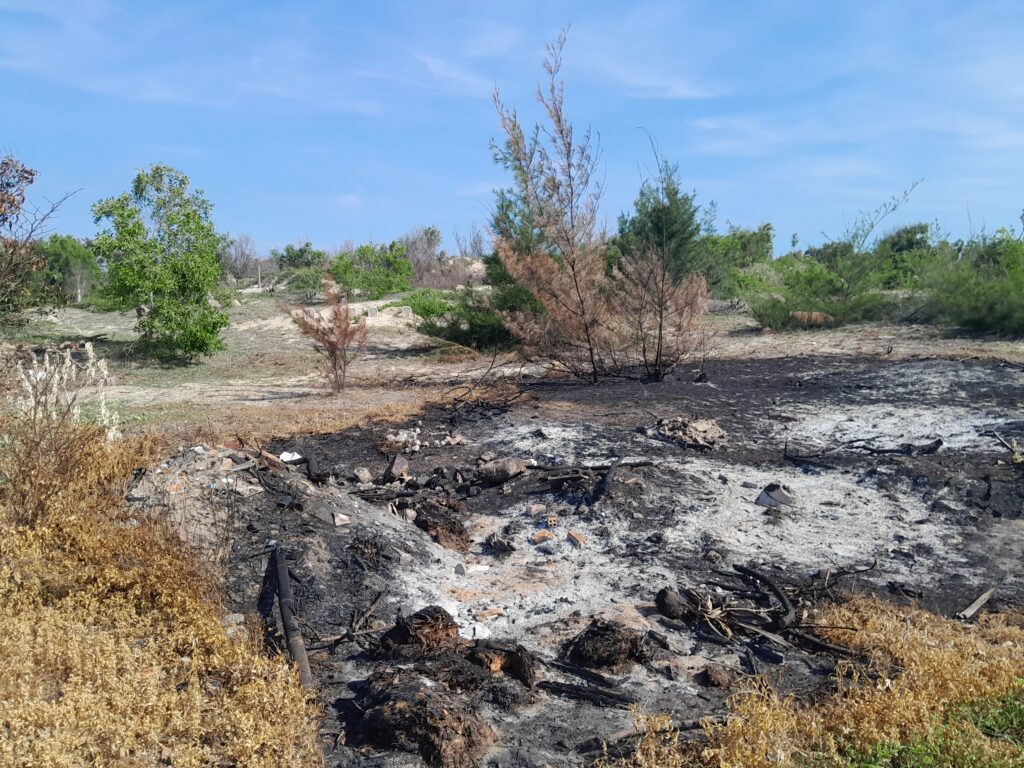
As I got to the other side of town, further away from the beach, the ground became sand. Mui Ne is known for its sand dunes, and even within the town there are plenty. Not many people lived out on the dunes, though there were still a few homes spread out in this area.
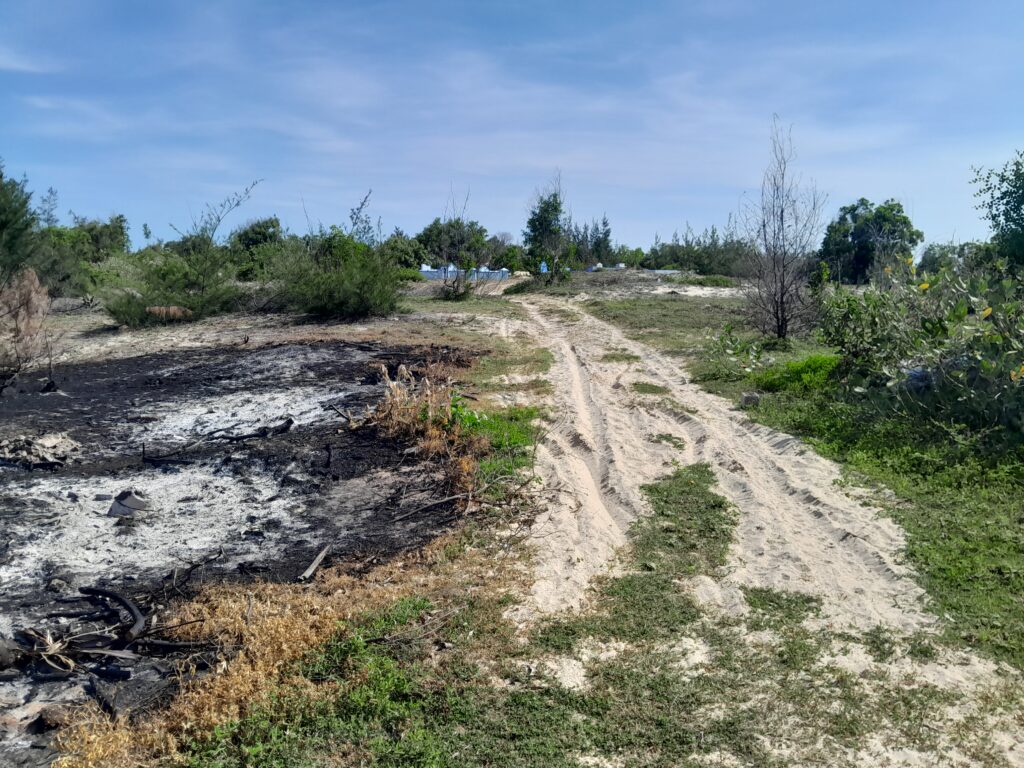
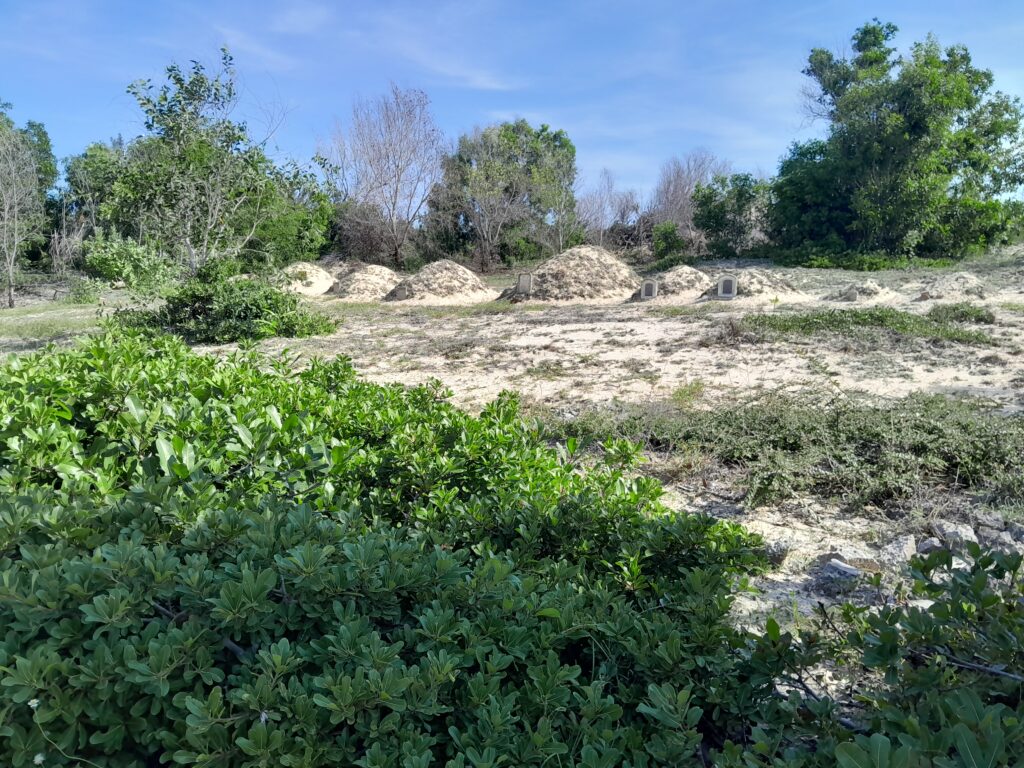
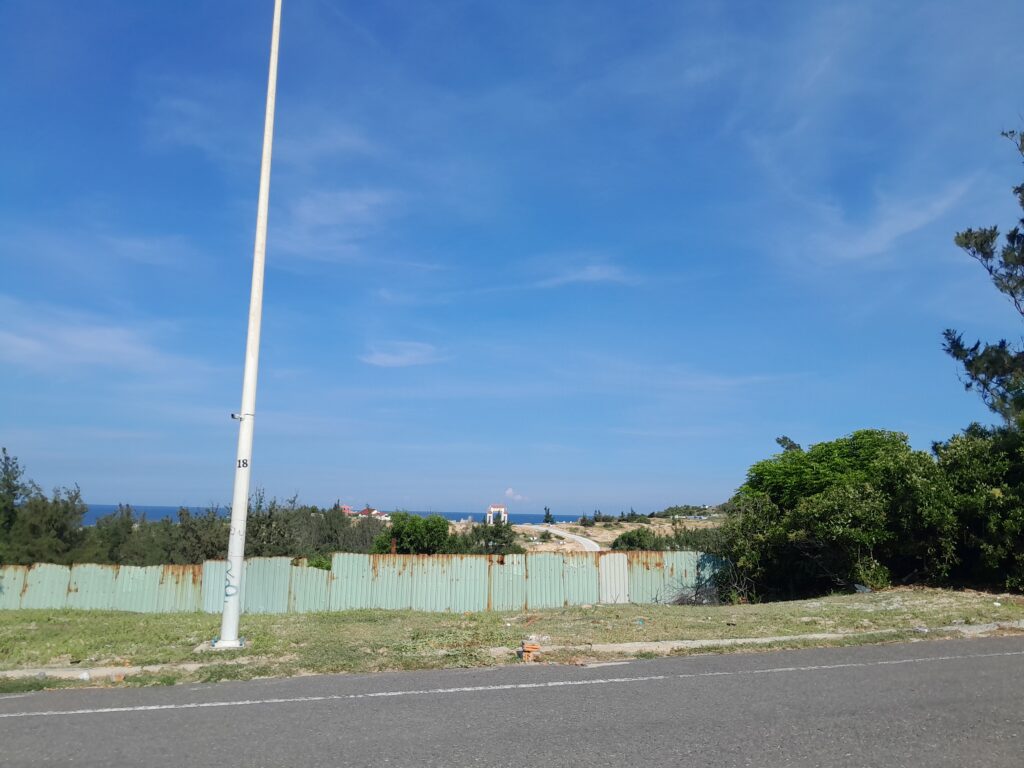
Eventually I would come to a peninsula that appeared to have a holy site on it. Small, colourful graves lined the path, and in the distance an ornate white gate let to a white temple with a chinese-style red roof. I saw a few people walking to the temple, carrying religious affects with them.
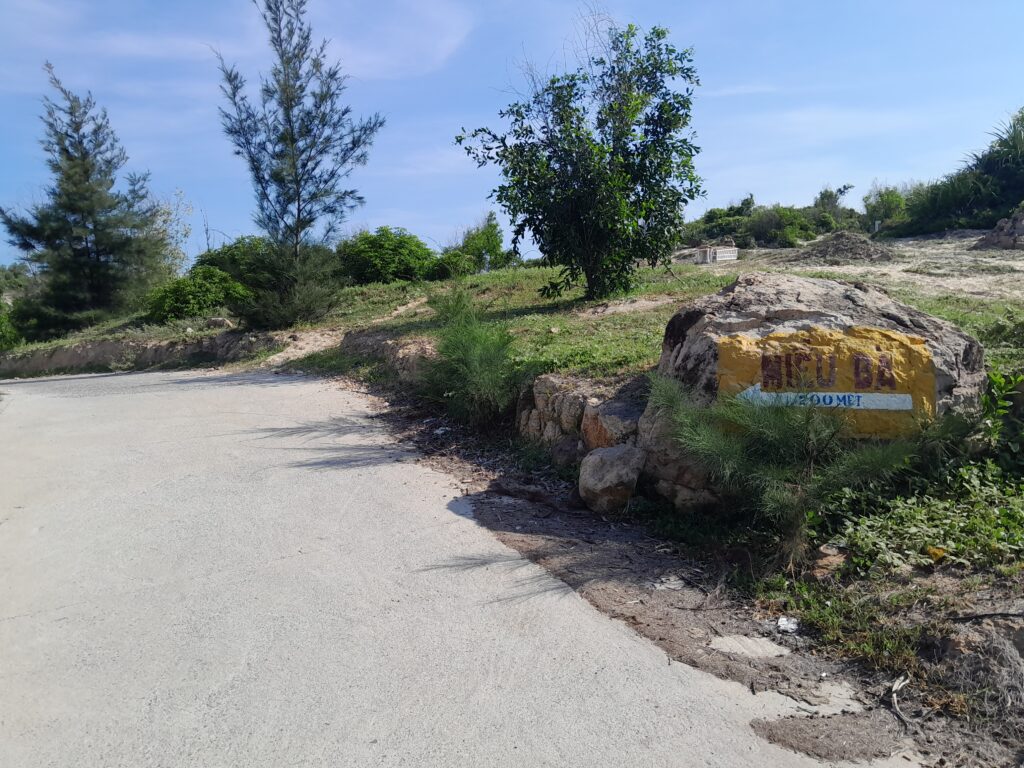
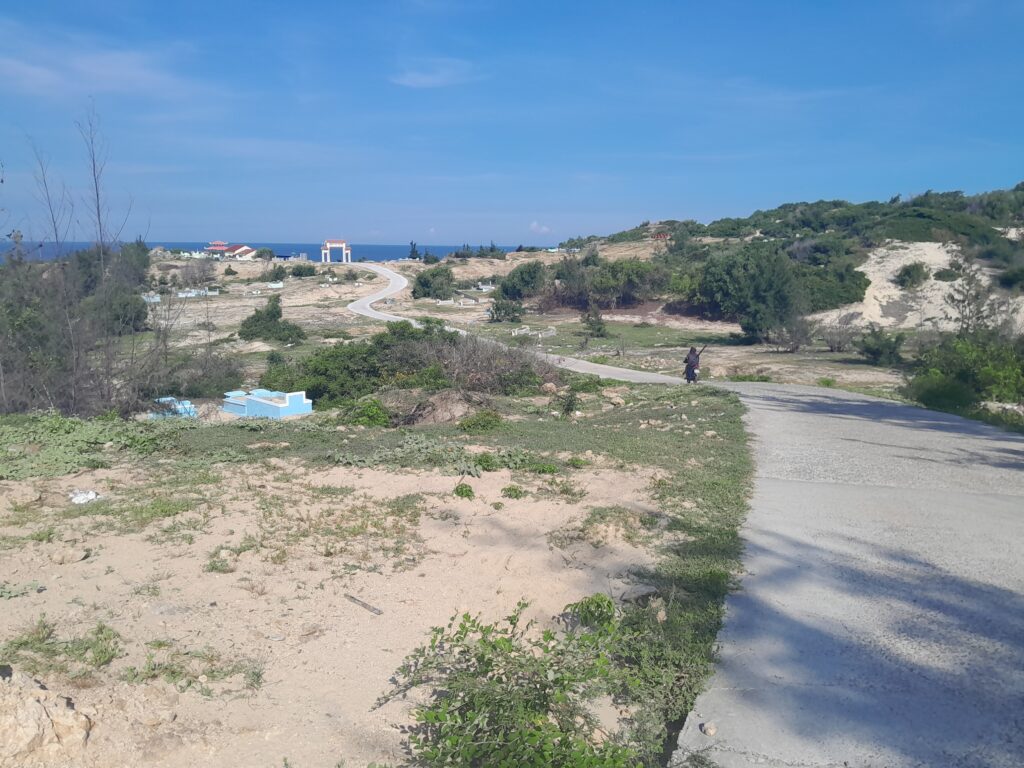
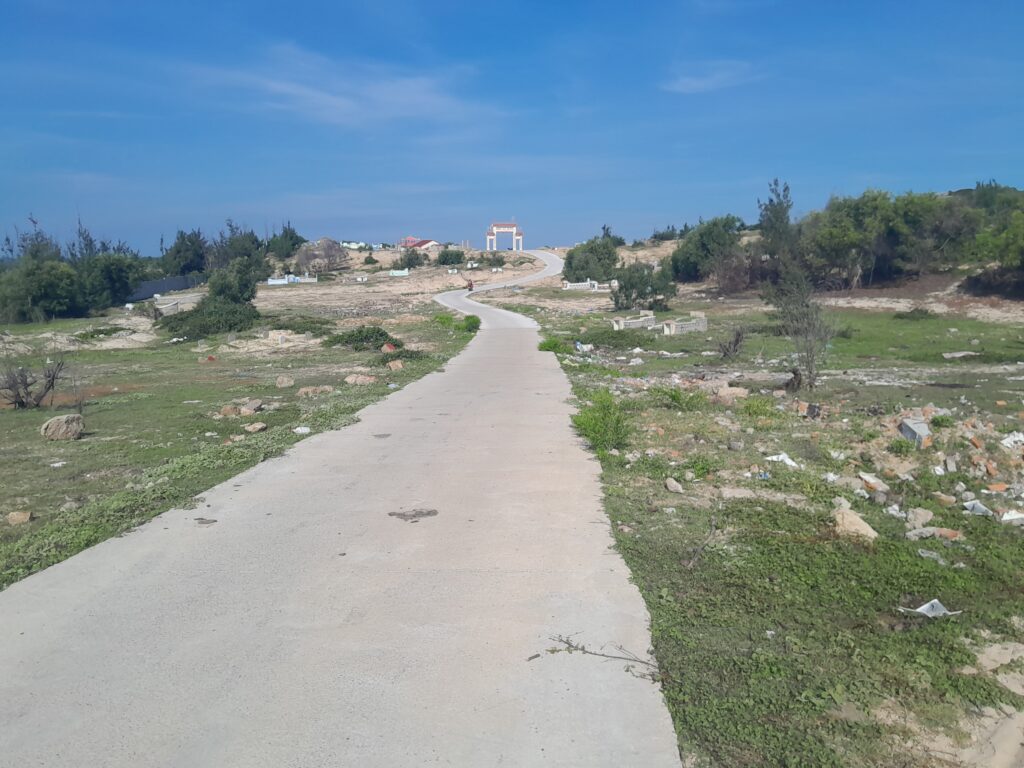
I decided not to disturb their worship, and turned back toward the town. Outside a nearby hotel I ordered a taxi back to my hotel. After a long day’s walk, all a traveller needs is a cold beer and a hot meal before they lay down in bed.




One thought on “Disappointing Beach in Mui Ne”